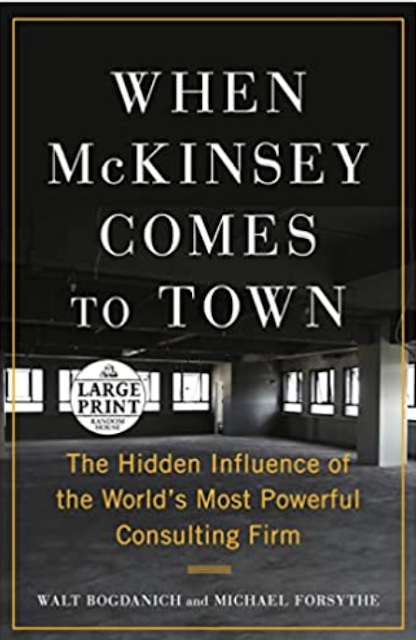Ever since I took more than my share of economics courses while in college, I've tried to keep up--in a non-academic way--with what's happening in the world.
How does inequality happen?
How does poverty stay entrenched?
How do companies shoot up then five years later collapse?
How do some people take home hundreds of millions, even when their companies fail?
What's behind the massive layoffs we're seeing so much of?
Many of the books, magazines and newspapers I read talk about these issues.
Rignt now I'm reading "When McKinsey Comes to Town: The Hidden Influence of the World's Most Powerful Consulting Firm".
You can buy it here. And read the Times' review here.
The authors go through case after case of what companies look like before, during and after their involvement with McKinsey. I'm not talking about McKinsey's involvement with Perdue Pharmaceutical. In that instance, they helped Perdue devise strategies to sell more opioids. Eventually, McKinsey admitted no wrongdoing, but even though, according to them, they did nothing wrong, they agreed to pay a $573 million fine.
"When McKinsey," goes through case after case of how McKinsey operates today. Their course is so often repeated, I plotted it on a curve. I'm not an economist, but I stand by this general depiction of McKinsey's practices.




No comments:
Post a Comment